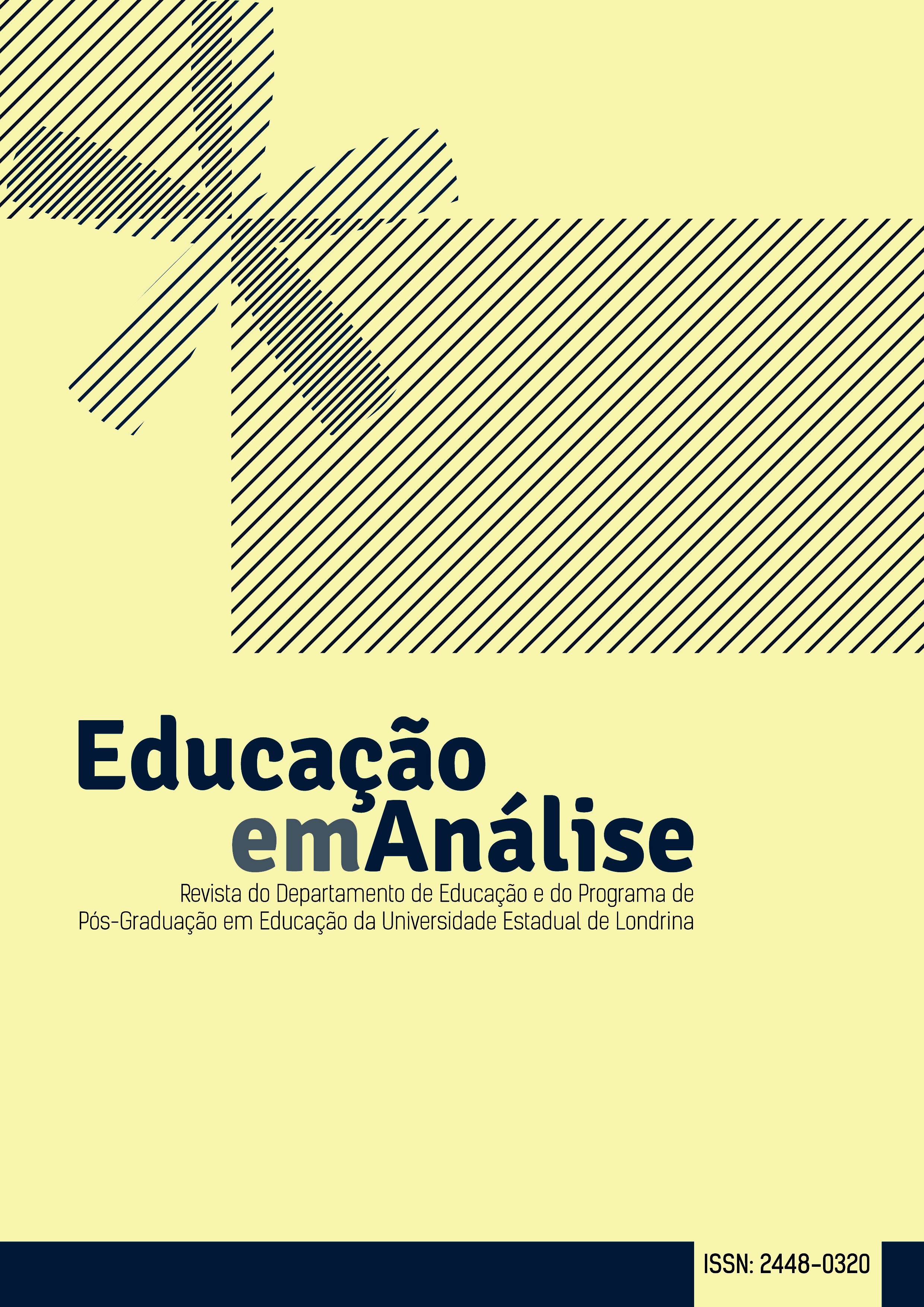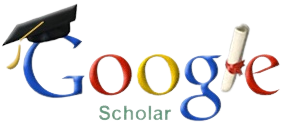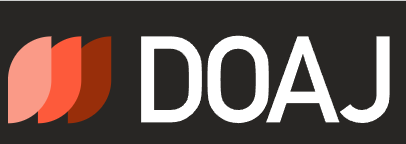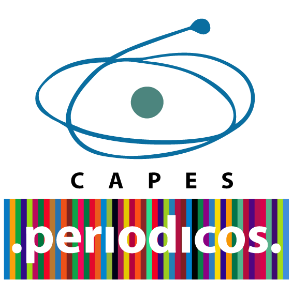Artificial Intelligence in academic writing: is there still a place for the subject in writing?
DOI:
https://doi.org/10.5433/1984-7939.2024v9n2p594Keywords:
Artificial Intelligence, Academic Writing, SubjectAbstract
This essay aims to discuss AI and its implications for the academic writing of postgraduate students in education. Issues are: How does the advancement of AI transform the writing challenges of postgraduate students? What will be the place of these subjects in the new configurations of academic writing? We used the Freirean concepts of limit situations, limit acts and the unpublished viable to explain the overcoming of limits by subjects involved in the educational experience. We also dialogued with the specialized literature on academic writing and artificial intelligence in education. Finally, we noted the complexity of the issue and reinforced that, regardless of how AI is used in academic writing, the subject and their experience should not be erased from it. Erasing the subject would completely deconfigure authorship and education as a transformative and collective process.
Downloads
References
ALVES, Maria Fátima; MOURA, Lucielma de Oliveira Batista Magalhães de. A escrita de artigo acadêmico na universidade: autoria x plágio. Ilha do Desterro, Florianópolis, v. 69, n. 3, p. 77-93, dez. 2016. DOI: https://doi.org/10.5007/2175-8026.2016v69n3p77.
ARAÚJO, Marcelo. O uso de inteligência artificial para a geração automatizada de textos acadêmicos: plágio ou meta-autoria?. Logeion, Rio de Janeiro, v. 3, n. 1, p. 89-107, set. 2017. DOI: https://doi.org/10.21728/logeion.2016v3n1.p89-107
BECKER, Howard S. Truques da escrita: para começar e terminar teses, livros e artigos. Rio de Janeiro: Zahar, 2015.
BOA SORTE, Paulo; FARIAS, Mário André de Freitas; SANTOS, Allessandra Elisabeth dos; SANTOS, Jefferson do Carmo Andrade; DIAS, Jamile Santos dos Santos Rodrigues. Inteligência artificial e escrita acadêmica: o que nos reserva o algoritmo GPT-3?. EntreLinguas, Araraquara, v. 7, p. 1-22, 2021. DOI: https://doi.org/10.29051/el.v7i00.15352.
BONDÍA, Jorge Larrosa. Notas sobre a experiência e o saber de experiência. Revista Brasileira de Educação, Rio de Janeiro, v. 19, p. 20-28, jan./abr. 2002. DOI: https://doi.org/10.1590/S1413-24782002000100003.
CARVALHO, André Carlos Ponce de Leon Ferreira. Inteligência artificial: riscos, benefícios e uso responsável. Estudos Avançados, São Paulo, v. 35, n. 101, p. 21-36, 2021. DOI: https://doi.org/10.1590/s0103-4014.2021.35101.003.
COZMAN, Fabio Gagliardi; NERI, Hugo. O que, afinal, é inteligência artificial?. In: COZMAN, Fabio Gagliardi; PLONSKI, Guilherme Ary; NERI, Hugo (org.). Inteligência artificial: avanços e tendências. São Paulo: Instituto de Estudos Avançados, 2021. p. 19-27.
DINIZ, Debora; MUNHOZ, Ana Terra Mejia. Cópia e pastiche: plágio na comunicação científica. Argumentum, Vitória, v. 3, n. 1, p. 11-28, 2011. DOI: https://doi.org/10.18315/argumentum.v3i1.1430.
FOUCAULT, Michel. A ordem do discurso. São Paulo: Edições Loyola, 1996.
FREIRE, Ana Maria Araújo. Inédito-Viável. In: STRECK, D. R.; REDIN, E.; ZITKOSKI, J. J. (org.). Dicionário Paulo Freire. Belo Horizonte: Editora Autêntica, 2010. p. 223-226.
FREIRE, Paulo. O papel da educação na humanização. Paz e Terra, Rio de Janeiro, n. 9, p. 123-132, out. 1969. Disponível em: https://acervoapi.paulofreire.org/server/api/core/bitstreams/f57055aa-f92d-4702-b2d4-c3b59e90e161/content. Acesso em: 24 maio 2023.
FREIRE, Paulo. Pedagogia da autonomia: saberes necessários à prática educativa. Rio de Janeiro: Paz e Terra, 1996.
FREIRE, Paulo. Pedagogia da esperança: um reencontro com a pedagogia do oprimido. Rio de Janeiro: Paz e Terra, 2006.
FYFE, Paul. How to cheat on your final paper: assigning AI for student writing. AI & Society, Berlim, v. 38, p. 1395-1405, mar. 2022. DOI: https://doi.org/10.1007/s00146-022-01397-z.
GIL, Beatriz; GALLI, Fernanda Correa Silveira. Discurso acadêmico: a regulação do poder disciplinar e do panóptico. Linguagem e Ensino, Pelotas, v. 22, n. 3, p. 774-790, 2019. DOI: https://doi.org/10.15210/rle.v22i3.17146.
KROKOSCZ, Marcelo. Autoria e plágio: um guia para estudantes, professores, pesquisadores e editores. São Paulo: Atlas, 2012.
MOROZOV, Evgeny. Big tech: a ascensão dos dados e a morte da política. São Paulo: Ubu, 2018.
PITANO, Sandro. Sujeito Social. In: STRECK, Danilo R.; REDIN, Euclides; ZITKOSKI, Jaime José (org.). Dicionário Paulo Freire. Belo Horizonte: Editora Autêntica, 2010. p. 384-385.
RODRIGUES, Sirlene; LOPES, Carlos. O silêncio do PNLD e dos livros didáticos sobre o ciberplagiarismo. Práxis Educativa, Ponta Grossa, v. 18, p. 1-17, 2023. DOI: https://doi.org/10.5212/PraxEduc.v.18.21432.014.
SABZALIEVA, Emma; VALENTINI, Arianna. ChatGPT and artificial intelligence in higher education: quick start guide. Paris: Unesco, 2023. Disponível em: https://unesdoc.unesco.org/ark:/48223/pf0000385146. Acesso em: 12 jun. 2023.
TRIVIÑOS, Augusto N. S. Introdução à pesquisa em ciências sociais: a pesquisa qualitativa em educação. São Paulo: Atlas, 1987.
ZITKOSKI, Jaime José. Humanização/Desumanização. In: STRECK, Danilo R.; REDIN, Euclides; ZITKOSKI, Jaime José (org.). Dicionário Paulo Freire. Belo Horizonte: Editora Autêntica, 2010. p. 210-211.
Downloads
Published
How to Cite
Issue
Section
License
Copyright (c) 2024 Alexandre Marinho Pimenta, Carlos Lopes , Cássia Elen Nunes de Almeida , Sabrina Stein

This work is licensed under a Creative Commons Attribution-NonCommercial 4.0 International License.
Os artigos publicados na Revista Educação em Análise estão sob a Licença Creative Commons Atribuição 4.0 Internacional, garantindo Acesso Aberto. Deste modo, os autores mantêm os direitos autorais de seus trabalhos e, em caso de republicação, solicita-se que indiquem a primeira publicação nesta revista. Essa licença permite que qualquer pessoa leia, baixe, copie e compartilhe o conteúdo, desde que a devida citação seja feita. Além disso, autoriza a redistribuição, adaptação e criação de obras derivadas em qualquer formato ou meio, incluindo uso comercial, desde que a atribuição à revista seja mantida.
A revista se reserva o direito de efetuar, nos originais, alterações de ordem normativa, ortográfica e gramatical, com vistas a manter o padrão culto da língua e a credibilidade do veículo. Respeitará, no entanto, o estilo de escrever dos autores. Alterações, correções ou sugestões de ordem conceitual serão encaminhadas aos autores, quando necessário.
As opiniões emitidas pelos autores dos artigos são de sua exclusiva responsabilidade.
























